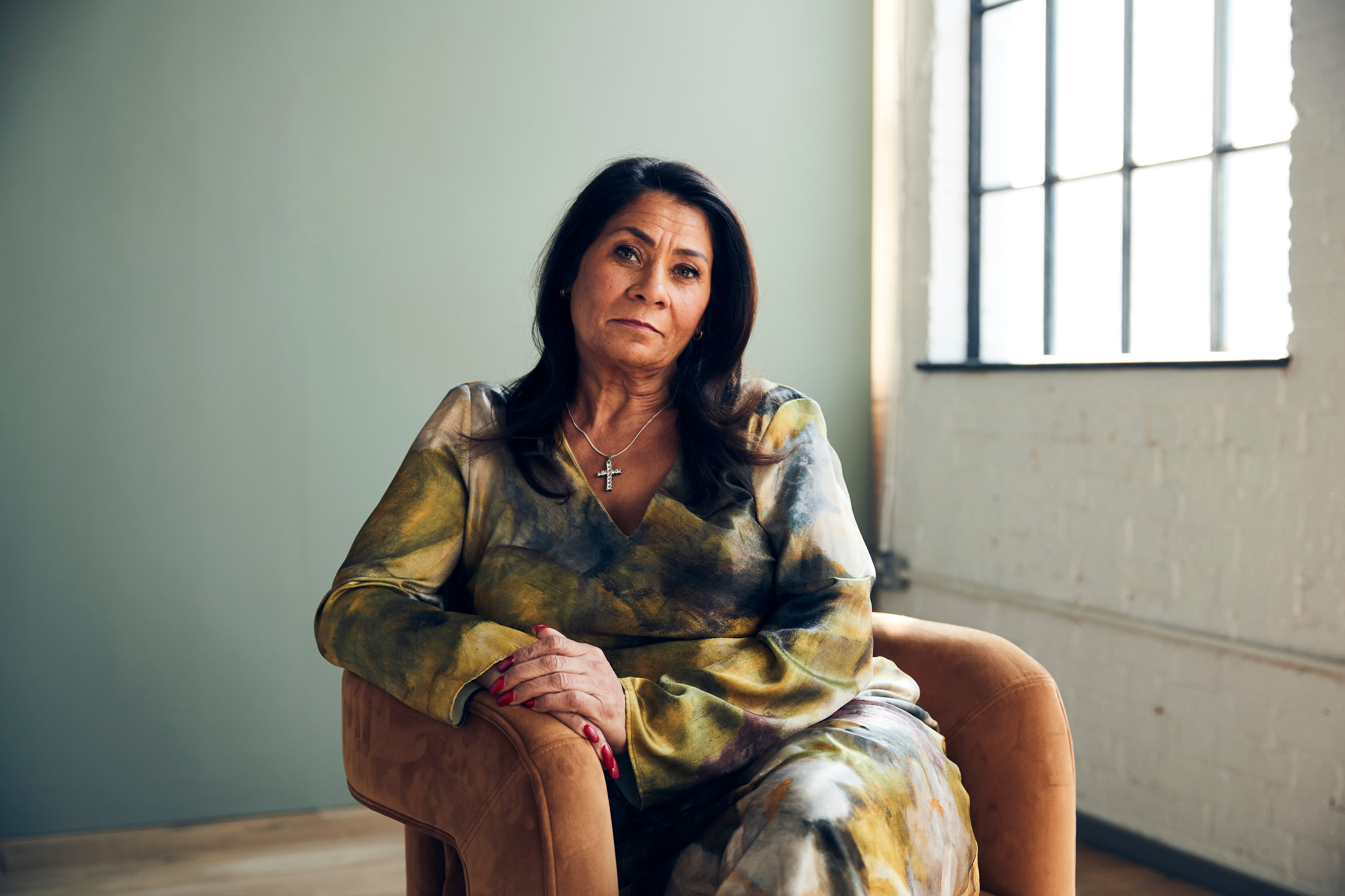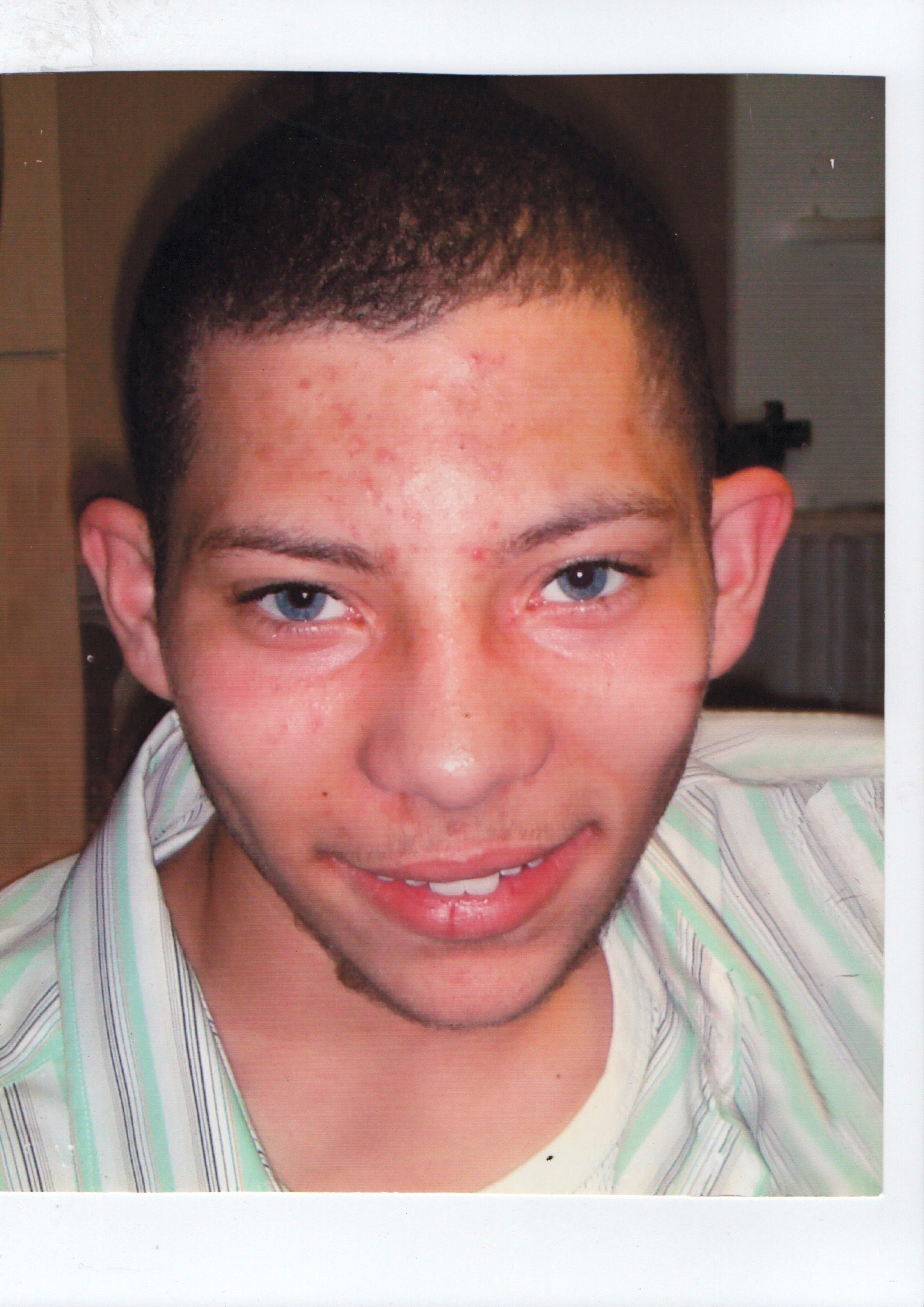When Nerissa Tivy sees other people’s sons graduate or welcome a new baby, she smiles for them.
“But there’s a part of me that just sits there and thinks, oh my God, I’ll never see that with Alex now, never,” she says.
Ms Tivy is one of more than 430,000 people affected each year by the disappearance of a child. Her son, Alexander Sloley, went missing in August 2008 when he was 16. He vanished from a friend’s house in Islington, north London, with no wallet, no spare clothes and very little money.
Alex’s story comes as The Independent and the charity Missing People launch the SafeCall appeal, aiming to raise £165,000 to fund a new free service offering support and safety to the 70,000 children reported missing each year.
Donate here or text SAFE to 70577 to give £10 to Missing People – enough for one child to get help.
Alex, who would now be 34, was an Arsenal fan and a maths enthusiast – a gentle, protective teenager devoted to his mother and three sisters. One of them was only five when he vanished, but still remembers him taking her to nursery on his bike.
“He didn’t like trouble or confrontation,” Ms Tivy says. “He just wanted everyone to be happy.”

At first she thought her son must have gone to stay with friends. But when he didn’t come home for his 17th birthday two days later, and then missed hers a few weeks after that, she went to the police.
For months, all she had was a reference number. “What do you do next?” she says. “My child’s missing and no one’s telling me anything.”
It was more than two years before she says police made contact again. “You report your child missing and no one gives a damn,” she says. “It took them two years and three months before they contacted me. Had they done something earlier, maybe we’d have answers by now.”
Every day, Alex is still in her thoughts. “It could be anything – just a smell, a memory. I could be making cornmeal porridge or frying dumplings, and suddenly Alex is there in my head.”
Even something as small as buying perfume can spark a wave of grief. “He used to ask me to bring home men’s samples,” she recalls. “We had a jar full of them indoors – he was always smelling good.”
Despite her frustration with the investigation, Ms Tivy remains determined. Her message to other parents is simple: “Never give up. Be persistent with the police and demand your answers.”

She claims that racism played a role in the investigation’s delay and was part of the reason why police deemed that Alex, who is Black, went missing of his own accord. “When I reported him missing, he was a minor. Why didn’t they contact any other agencies, like social services?” she asked.
Ms Tivy watches officers take on her case for a year at a time before being replaced by someone who has to read all the case files and start again from the beginning. “These officers just come to look at your case, kind of smile about it and see you for like one or two meetings, and after that, they’re gone,” she said. “There’s nothing concrete.”
Alex’s father died in 2014 without ever knowing what happened. “If I die and I don’t get an answer, hopefully my children will get an answer,” Ms Tivy said.
If she could speak to her son right now, she would say: “Call us, Alex, or come home or let someone know that you’re safe.”
Detective chief inspector Sarb Kaur, who is leading the investigation for the Metropolitan Police, said: “I fully understand the pain and frustration felt by Alex’s family and we remain committed to finding out what happened to him.
“A fresh witness appeal was launched earlier this year with a £10,000 reward for information. The investigation team has been established, and a family contact officer continues to provide updates and support to Alex’s family.”
DCI Kaur has urged anyone with information to come forward. This can be done anonymously.

Josie Allan, the head of policy and partnerships at Missing People, said: “Nerissa has shown extraordinary strength and determination in the face of unimaginable pain. Every family deserves a fair response from the agencies there to assist them.
“The charity continues to stand alongside Nerissa and her family as they search for answers about what happened to her son, Alexander. We also hope that any child or young person who feels frightened or at risk knows they can reach out to a confidential, anonymous support service for help. By giving young people a safe space to talk, we can help prevent more children from going missing in the first place.”
Please donate now to the SafeCall campaign, launched by The Independent and Missing People, to help raise £165,000 to create a free service to help find new, safe futures for vulnerable children.
For advice, support and options, if you or someone you love goes missing, text or call 116 000. It’s free, confidential and non-judgemental. Or visit www.missingpeople.org.uk/get-help.







